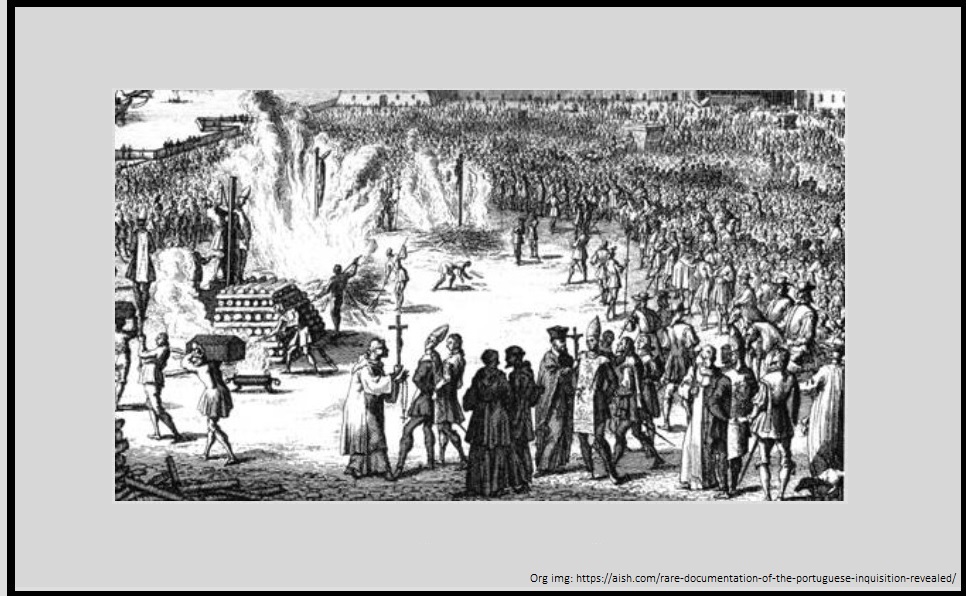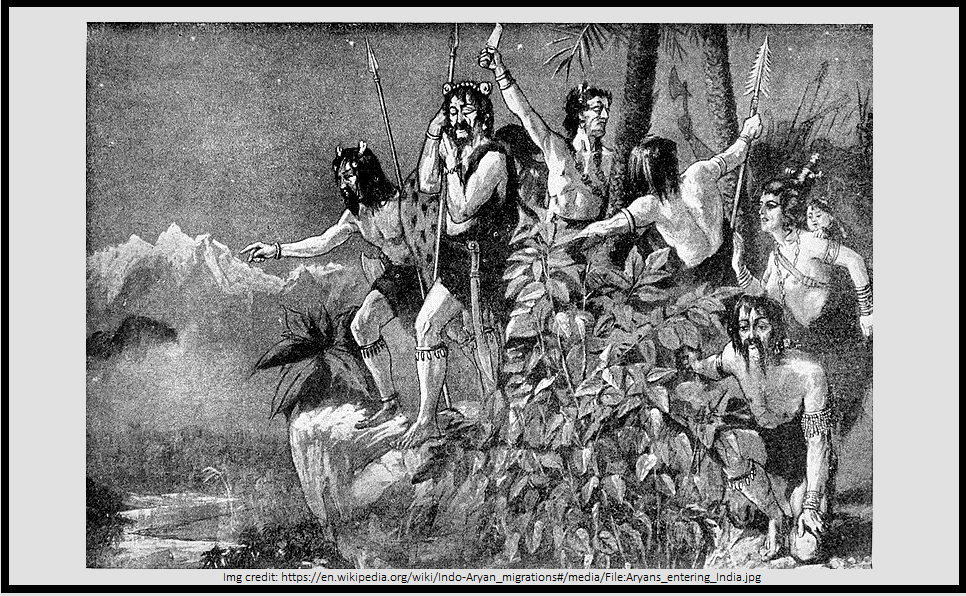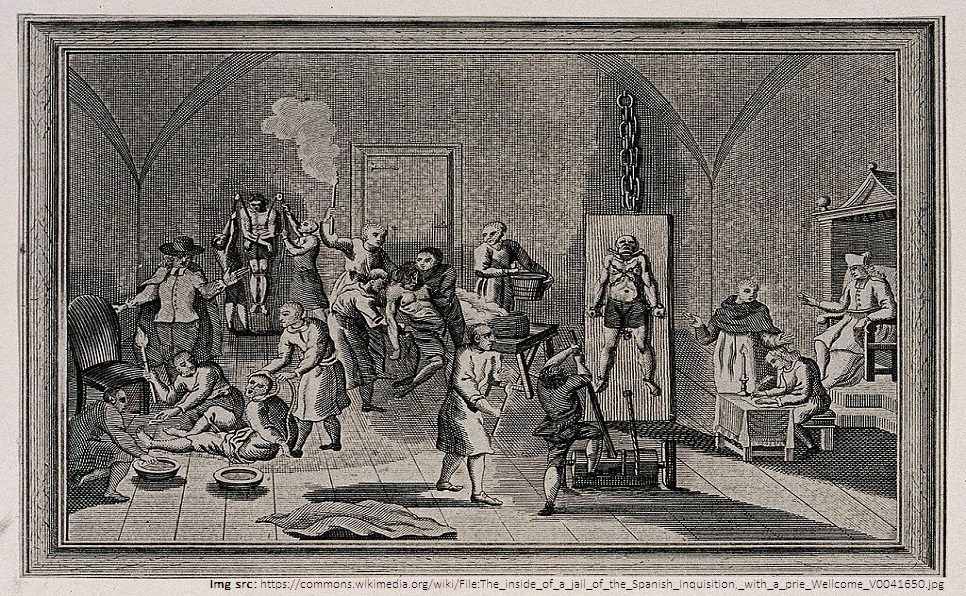The Portugal Inquisition had clear influences on the Goa Inquisition in its establishment, practices, and policies. Despite this, the Goa Inquisition surpassed both the Portugal Inquisition and Spanish Inquisitions in terms of severity. The Portugal inquisition was established in 1536 during the reign of D. Manuel and was abolished in 1820. During Spanish Inquisition, the Jews from Spain arrived in Portugal after they were ordered to leave Spain. They faced atrocities in Portugal as well.
Jewish Community in Portugal
Traditionally, Portugal was tolerant of the Jews and Jewish community. The Jews had considerable wealth, influence and power in that country. The members of Jewish community also practiced as creditors. There were still many restrictions.
- Unlike the Christian churches, synagogues (Jewish buildings of worship) could not hold real estate.
- All Jews had to pay a special poll tax. (This formed the precedent for a similar tax imposed on Hindus in Goa during the early Portuguese regime).
- If the son of a Jew embraced Christianity, not only was the father not permitted to disinherit him, but, on the other hand, the son was entitled to immediately receive a share in the paternal and maternal estates. If both the parents were dead and if the son was the only child, he immediately received two-thirds of the family property. This measure proved very effective as an incentive to conversion
- The Jews were forced to live in segregation in separate parts of towns which were known as Judarias and were administered by committees of their representatives known as Communes.
- The Jews were not allowed to employ Christians as servants.
- The Jews could not wear silk garments or jewels and could not ride horses.
However, despite these restrictions, the Jewish community in Portugal had the freedom to follow their religion and to use its practices in their synagogues (Jewish buildings of worship)
Arrival of Jews from Spain in Portugal
During the Spanish inquisition, when the Jewish community in Spain faced the order to leave Spain within four months, they turned to Portugal for help. This was because of the geographical contiguity of these two countries and also because of their intimate ties with the Jewish community in Portugal. They approached the King of Portugal with a request for temporary asylum and offered to pay large sums for this favor. The King D. Joio II agreed on a condition that they leave the country within 8 months and pay a certain sum per head as capitation tax. It was also agreed that ships for further journeys should be made available to them when they left the country.
Jews from Spain compelled to leave Portugal
Unfortunately, at this time an epidemic of plague appeared in Spain and the immigrants carried the contagion to Portugal. There were already some fanatics in the Portugal society who harboured ill-will towards Jews and this ill-will increased considerably because the Jews brought plague contagion from Spain. Hence, D. Joo II compelled them to leave Portugal even before the agreed 8 months and provided ships for their further journeys. However, the captains and crew of the ships robbed them and abandoned them at various places on the African coast. Some perished of hunger and others became slaves of the Moors (term used by Europeans for Muslims). An absurd story had spread that the Jews reduced their gold to powder and swallowed it in order to avoid losing it. The Moors killed many travellers with the hope of finding gold in his entrails.
Some of the Jews could not afford to pay the capitation tax or wished to evade it had entered the country secretly. Such Jews when caught were forced to slavery and distributed among those who asked for them. Children between the ages of 8 and 10 of such Jews were snatched away from their parents, and sent to the island of St. Thome which was then being colonized.
At this juncture, D. Joao II died in 1495 and was succeeded by a nephew, D. Manoel. He was of a tolerant disposition and for some time the Jews received protection under him.
State Order to expel Jews from Portugal
However, D. Manoel developed a passionate attachment for D. Isabella (eldest daughter of Ferdinand and Isabella of Spain) and wished to marry her. D. Isabella had a fanatical hatred for the Jews. One of the conditions on which the Spanish Court agreed to offer the hand of Isabella to D. Manoel was that the Jews who moved to Portugal to escape Spanish Inquisition should be expelled. In 1497 the marriage contract was signed. Under this contract, it was stipulated that the expulsion of these Jews should be completed within one month, and it was only after verifying this fact that D. Isabella agreed to the union.
However, the Spanish monarchs were not satisfied with the banishment of the Jews of Spanish origin from Portugal. They desired that the Jews who belonged to Portugal should also be expelled. To meet their wishes, D. Manoel issued an order in December 1446 that all the Jews who were not converted to Christianity should leave the country within ten months. Failure to comply would entail death penalty and loss of all property, which would pass to the informer. Those who left the country were to be allowed to carry with them all their possessions and were assured that they would be provided with the necessary means of transport.
It was found that a large majority of the Jews preferred exile to conversion to Christianity. Therefore, another order was issued that children below 14 years of age should be forcibly taken away from all the Jews who left the country and handed over to persons who would bring them up in the Christian faith. Those members of the community who were more passionate towards their religion preferred to tear their children to pieces, strangle them or drown them in wells, than hand them over to the officers of the king. The scope of this order, which was originally applied only to children upto age of 14, was subsequently extended for children upto age of 20.
As the period allowed for the departure of the Jews was nearing its end, heads of principal Jewish families who had not succeeded in secretly leaving the country pressed the king to provide them with ships or at least to permit them to hire ships at their own cost. They were asked to gather in Lisbon where the royal promises would be fulfilled. tMore than 20,000 of them assembled at Estaos, a palace in Lisbon. Here, a cruel fate awaited them. Children who had not already been taken away by the king’s officers, were snatched away from their parents without regard to age or sex. Thereafter, even older men of all ages were baptised by force.
Jews felt inquisition might come soon and started preparing
On May 80, 1497, D. Manoel ordered that the new converts should be allowed a period of twenty years for familiarizing themselves with the new faith and forgetting their old beliefs. During this period no proceedings should be taken against them on account of their religious behavior. After the expiry of this period, if a new convert was accused of following Jewish practices, he was to be tried in accordance with the law. During the trial, If he was condemned to the loss of his property, it would pass to his Christian heirs.
New converts given deadline to familiarize with faith
There were many in Portugal who now felt keenly the need for inquisition in Portugal. The more far-seeing among the new converts were well aware of this and thought of migration to countries like Italy, Flanders or the Orient where they could hope for greater tolerance and security. They started converting their immovable property into cash and other movable assets for preparation of exile.
In April 1499 two orders were published under which the local residents as well as foreigners in the country were forbidden to have exchange dealings over cash or merchandise with the New Christians and required to report those already effected within eight days. It mentioned that no one should buy real estate from the New Christians without a special royal licence and that New Christians should not leave the country with wife, sons of household without express permission of the king. Failure to comply with these provisions entailed the penalty of confiscation.
Inquisition introduced in Portugal
On the death of D. Manuel, his eldest son D. Joao III succeeded to the throne. He was of a fanatical disposition and entertained a profound hatred for the Jewish race. He took the task of investigating secretly into the religious habits of the New Christians in Lisbon, which was considered to be the principal focus of Judaism. During this period, accusations against the New Christians of committing sacrilege and insulting the Christian religion continued to multiply and there were frequent violent manifestations of popular ill-will against them. Through support from queen D. Catherine (sister of King of Spain), the influence of dominican friars in the Portuguese Court grew. Ultimately, The Portuguese Inquisition was introduced in 1536.
Historian Oliveris Martins on Portuguese inquisition:
Its processes infringed all the elementary rules of justice and good sense. The accusers made use of sons as witnesses to give evidence against their parents, and parents against their children ; the accused could not communicate with his advocates, nor did he know who his accusers were. The charge was always applauded and spying considered to be a virtue. The familiars ingratiated themselves with families, as medical men, confessors, intimate friends and advisers to worm out secrets and report them. There was neither appeal against the sentence nor revision. In prisons there was no period of limitation, and the prisoner remained for months, for years, often for the rest of life, without knowing what crime he was accused of. Traps were set for him ; and he was waylaid with treachery. Prison guards were bribed to worm out secrets and pretended to be sympathetic, to favour him and to pity him in his distress. They did thus win his confidence, and he was inclined to be confidential. ‘The Inquisiton was a horror, a plague! To extort confession of faults, often times imaginary, the inquisitors pretended to soften and tone down, promised pardons and help, and cajoled until the poor wretch confessed all that he did, or did not do. Everytime the prison-gate was opened, the prisoners quailed with fear, or with a faded hope. They were taken tied with ropes to the house of torture. In these dark tragedies the wretch often died, while under torture or in prison; he was then buried in the palace graves. the corpse being first unfleshed, religiously, in order that the bones might figure in the next auto-da-fé ( a public ceremony during which the sentences were read and after which the sentences were executed), and burnt in the fire.
With the efforts of liberal minister Marquez de Pombal, the inquisiton was rendered defunct and finally abolished in 1820. Until 1782 it condemned 28000 persons to various forms of punishment and burnt at the stake 1454 persons. There is no record of the number of persons who lost their lives as a result of tortures to which they were subjected during the trials.
Reference: The Goa Inquisition – The terrible tribunal for the East – A K Priolkar


